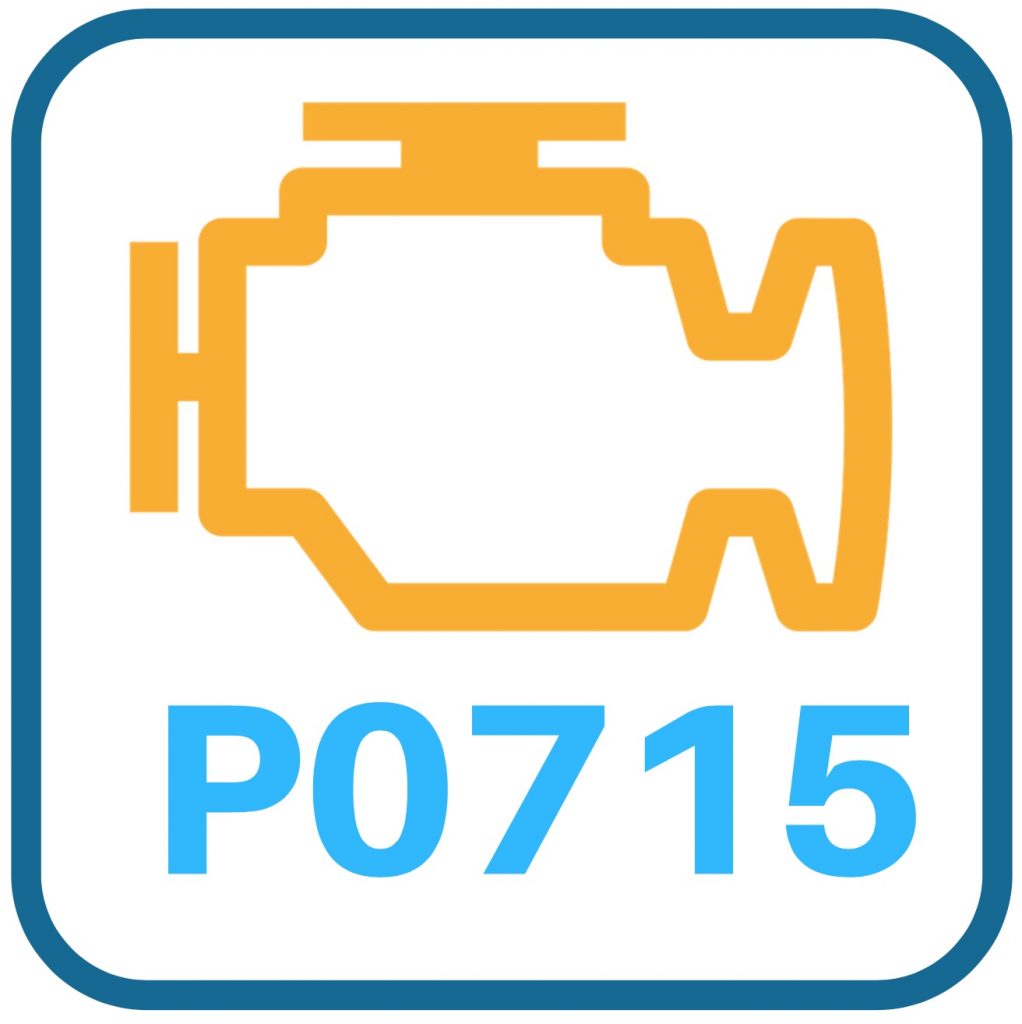P0715 is a generic, and somewhat rare OBDII trouble code. While this code can occur in any vehicle, it is most commonly seen in cars and trucks manufactured by Mercedes, Ford, and Nissan.
Simple Explanation: P0715 indicates there is a communication error with the sensor that measures transmission input speed.
Common Causes: A bad transmission speed sensor, shift solenoid, wiring issues, and even low/no transmission fluid can all cause P0715.
P0715 Definition: Input/Turbine Speed Sensor “A” Circuit Malfunction

Here’s the definition of P0715 broken down by its two parts:
Input/Turbine Speed Sensor
The input/turbine speed sensor measures the speed of the transmission’s input shaft. It does this by measuring the speed of a reluctor wheel by using electromagnets.
The reluctor wheel will have notches cut into it. As the input shaft turns, the input/turbine speed sensor can tell each time one of these notches passes it.
It relays this data to the ECU or TCM, which uses it to determine input shaft speed. Then, the PCM compares this data to engine RPM, the output shaft speed sensor, and the vehicle’s speed.
If the input/turbine speed reading doesn’t align with the variables listed above, a trouble code will be thrown, and the check engine light will come on.
The input/turbine speed sensor is usually screwed or bolted into the transmission case, so you won’t need to pull the transmission to service it.
Circuit Malfunction
The input/turbine speed sensor is sending a signal to the PCM that is out of range. Without knowing how fast the input shaft is spinning, the transmission will not shift properly (or at all), and P0715 will be thrown.
P0715 Symptoms
Common symptoms of P0715 include:
- Hard shifts
- Limp mode
- Stalling when slowing down (rare)
- Speedometer not functioning
P0715 Causes + Diagnosis

Here’s a solid way to go about diagnosing P0715.
1. Check the Transmission Fluid
Make sure that the transmission fluid level is full. Low transmission fluid will cause the input shaft speed to increase in relation to the engine speed (it’ll slip).
Dirty transmission fluid can also cause P0715. Transmission fluid that’s burnt or dirty can’t efficiently do its job, which can cause the input speed to change in relation to the output speed.
In this situation, input speed will be too high compared to the output speed and the vehicle speed.
2. Inspect the Input Speed Sensor Wiring
The wiring going to the input speed sensor can get damaged. Make sure that there is no frayed or damaged wiring. If there is, replace it.
Inspect where the harness plugs into the input speed sensor. Verify that it’s not visibly damaged. Do the pins look corrosion-free? They may need cleaning to make good contact.
3. Test the Voltage at the Input Shaft Sensor
Next, you’ll need to test the voltage and check the ground at the input/turbine speed sensor. There can only be two scenarios from here:
- The voltage is OK– At this point, replacing the sensor will likely clear P0715.
- Voltage issue– The wiring may have looked good, but you’ll need to find where the voltage is dropping, and repair the harness. A good mechanic has diagnostic equipment that can make this easy for them.
4. Transmission Issues
Repairing P0715 will usually involve the input/turbine speed sensor and its wiring, but internal transmission problems can cause it.
A bad valve body or shift solenoid can cause P0715.
Conclusion
P0715 is most commonly caused by a bad input/turbine speed sensor.
